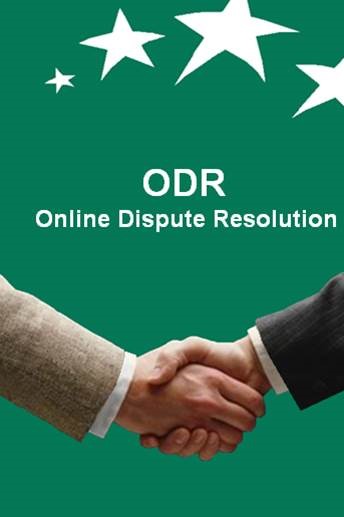Adam Sharon, Family Mediation Center, Boston
I happened to meet my friend Jammie Pennings comparatively junior, doing her second year JD in Hamline University School of Law. Whenever she meet me she seems little bit excited and a lot to talk about her legal studies and how she is going to pursue with her profession in the future. I used to encourage her and I always appreciated her smartness. She happened to be selected to represent ODR Conference from Hamline last year in California. But after back from the conference, she found to be tranquil and remain less enthusiastic during our meeting. May be due to some family problems, I tried to convince myself. But from her Professor, I learnt that she was too anxious about the advent of potential use of technology in the area of providing legal services replacing lawyers altogether for certain basic legal activities and can go to a level of meeting most complicated civil conflicts reaching a settlement. As such she was under the impression that many functions traditionally performed by lawyers will soon be routinely undertaken by software systems, whether such situation likely to present challenges for the legal community – I mean lawyers as a whole.
But as a legal professional I feel her fear is quite unwanted and unwarranted. The situation confronting her is presenting both challenges and opportunities for the legal community. The rationale in support of automating legal activities is simple. The automated systems can help to make the legal functions more readily accessible to the public at lower cost. Automation can also help to make legal activities more transparent to participants and faster to process.
At present, software-based systems are focusing their efforts on the resolution of some of the more common legal disputes. I am associated with Settlement Support, a dispute resolution based in India operating from Bangalore and Kochi. They have promoted a project “Gateway to Equity & Justice” where they are having two segments functioning under a portals www.odrsupport.com and www.softsettle.com . The later one is a prospective one and supposed to accommodate Automated Dispute Resolution software. They are bent on resolving civil disputes such as settlement of monetary disputes including debt resolution apart from insurance claim settlements, resolution of ecommerce disputes, consumer dispute resolution, settlement of the issues arising out of the M & A in the corporate sector etc. along with the social issues like patching up of conjugal life on the eve of divorce, divorce settlements and post divorce settlements are also being considered to facilitate whole proceedings.
Automated systems are not nearly as effective, however, for legal functions that are less standardized. Activities that require the exercise of judgment applied to the specific circumstances of each situation are less suitable for automated systems. These legal functions continue to be the domain of human legal practitioners.
Software-based systems designed to facilitate public access to legal functions are important and very valuable. We will likely see in the near future a rapidly growing number of legal activities and disputes handled by automated systems. This will benefit clients, who will have faster and less expensive access to legal support, and it will also benefit lawyers, who will be able to focus on the judgment-based and more nuanced services that clients can not obtain from automated platforms. Software-based systems provide critically important supplements to traditional legal services, but there will always be legal functions that can only be effectively performed by humans.



COMMENTS 0